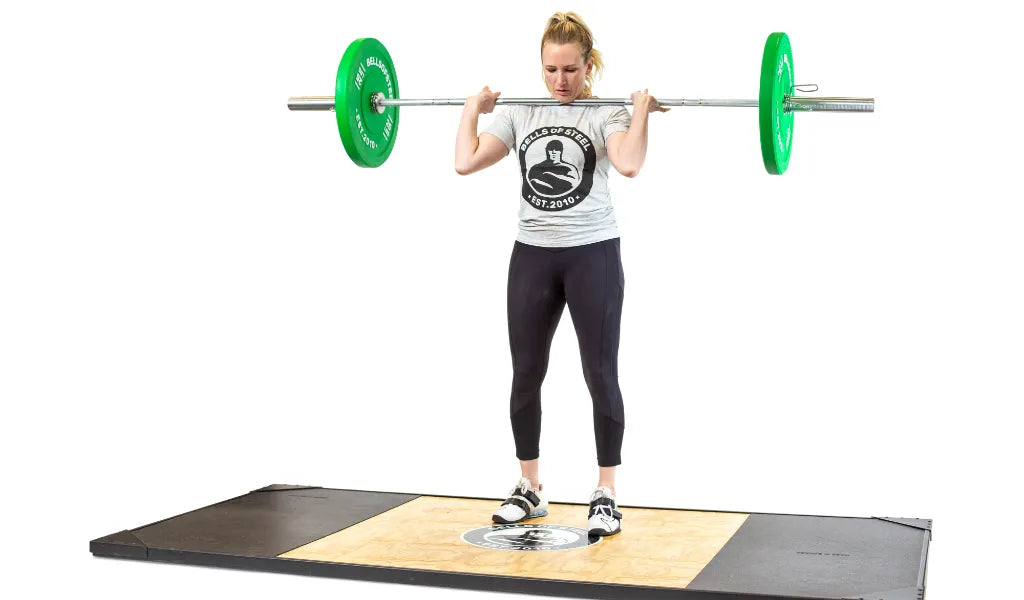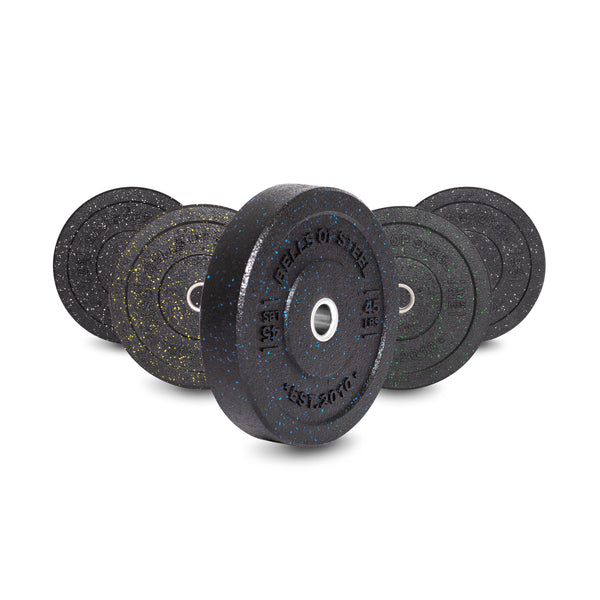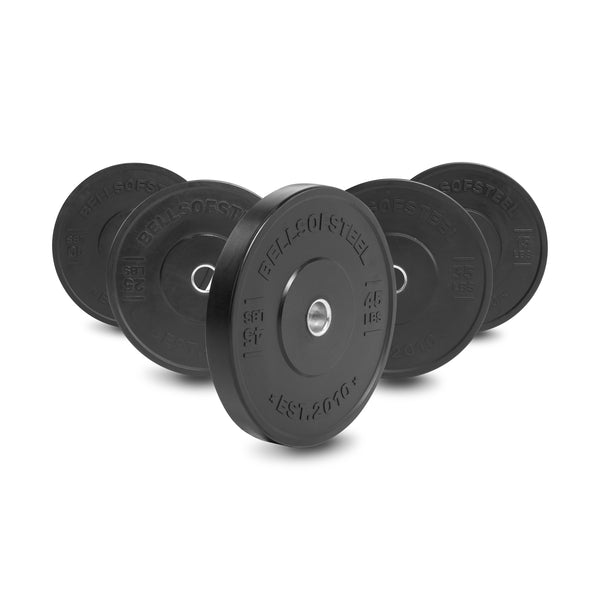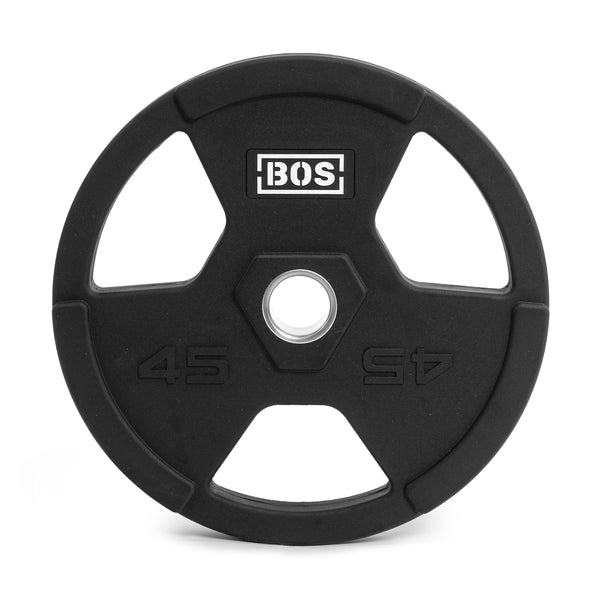When it comes to outfitting your home gym, the choice of weight plates can make or break your workout experience—quite literally if you're not careful!
Let's dive into the nitty-gritty of rubber coated weight plates versus bumper plates, and help you decide which ones deserve a spot in your iron paradise.
What Are Rubber Coated Weight Plates?
Rubber coated weight plates are essentially your classic iron plates, but with a sleek rubber jacket. Think of them as the Iron Man of weight plates—tough on the inside, stylish and protective on the outside. These plates are designed to reduce noise, protect your floors, and withstand some wear and tear.
Pros of Rubber Coated Weight Plates
One of the biggest perks of rubber coated weight plates is noise reduction. Dropping an iron plate can sound like a mini earthquake, but the rubber coating helps muffle the clang, making your workouts more neighbor-friendly.
Another pro is floor protection. The rubber layer acts as a cushion, preventing those nasty dents and scratches on your precious home gym flooring. Plus, they are more durable than bare iron plates, as the rubber helps prevent chipping and rusting.
Cons of Rubber Coated Weight Plates
However, rubber coated weight plates aren't perfect. While they can handle occasional drops, they're not built for repeated impact like bumper plates. The rubber coating can crack or peel over time, especially if you're into heavy lifting and tend to drop your weights frequently.
Additionally, they can be more expensive than standard iron plates due to the added material and manufacturing process.
What Are Bumper Plates?
Bumper plates, on the other hand, are the superheroes of the weight plate world. Made entirely of dense rubber, these plates are designed to be dropped from overhead during Olympic lifts without causing damage to the plates, the floor, or your eardrums. They're like the Hulk—tough, reliable, and ready to take a beating.
Pros of Bumper Plates
The primary advantage of bumper plates is their durability. These plates can handle the impact of being dropped from significant heights, making them ideal for Olympic lifting and blended workouts.
They're also much quieter than iron or even rubber coated plates, which is a blessing if you have close neighbors or sensitive housemates. Plus, the uniform diameter of bumper plates makes loading the bar easier and safer, especially for beginners.
Cons of Bumper Plates
On the flip side, bumper plates can be more expensive than both iron and rubber coated plates. They also tend to be bulkier, which means you might need more storage space.
Additionally, they often come in lower weight increments, which can be limiting if you're looking to lift really heavy.
Rubber Coated Weight Plates vs. Bumper Plates: Which Is Right for You?
Deciding between rubber coated weight plates and bumper plates depends on your workout style, budget, and space constraints.
If your workouts consist mainly of traditional lifts like bench presses, squats, and deadlifts, rubber coated plates might be your best bet. They offer noise reduction and floor protection without the extra bulk and expense of bumper plates.
However, if you’re into Olympic lifting, live for the workout of the day, or any training that involves dropping weights from overhead, bumper plates are the way to go. Their durability and shock absorption make them perfect for high-impact workouts. They’ll protect your floor, your equipment, and your ears, making them a smart investment for serious lifters.
Rubber Coated Weight Plates vs. Bumper Plates FAQs
Q: Can I drop rubber coated weight plates?
A: Occasionally, yes. Rubber coated plates can handle the odd drop, but frequent drops can damage the coating and your floor. For frequent dropping, opt for bumper plates instead.
Q: Are bumper plates worth the investment?
A: If you’re into Olympic lifting or functional fitness, absolutely. Bumper plates are designed to handle high-impact drops and will last longer under such conditions. They also reduce noise and protect your floors better than rubber coated plates.
Q: Do rubber coated plates smell?
A: New rubber coated plates can have a distinct smell due to the rubber material. The smell usually fades over time, but if it bothers you, airing them out in a well-ventilated space can help.
Q: Which plates are more space-efficient?
A: Rubber coated plates are generally more space-efficient as they are less bulky than bumper plates. If storage space is a concern, rubber coated plates might be the better choice.
Conclusion
Choosing between rubber coated weight plates and bumper plates ultimately comes down to your workout needs and preferences.
Rubber coated plates are great for traditional lifting with added noise and floor protection, while bumper plates are perfect for high-impact, drop-heavy workouts.
Whichever you choose, both options offer significant benefits for building your home gym arsenal. Happy lifting!



